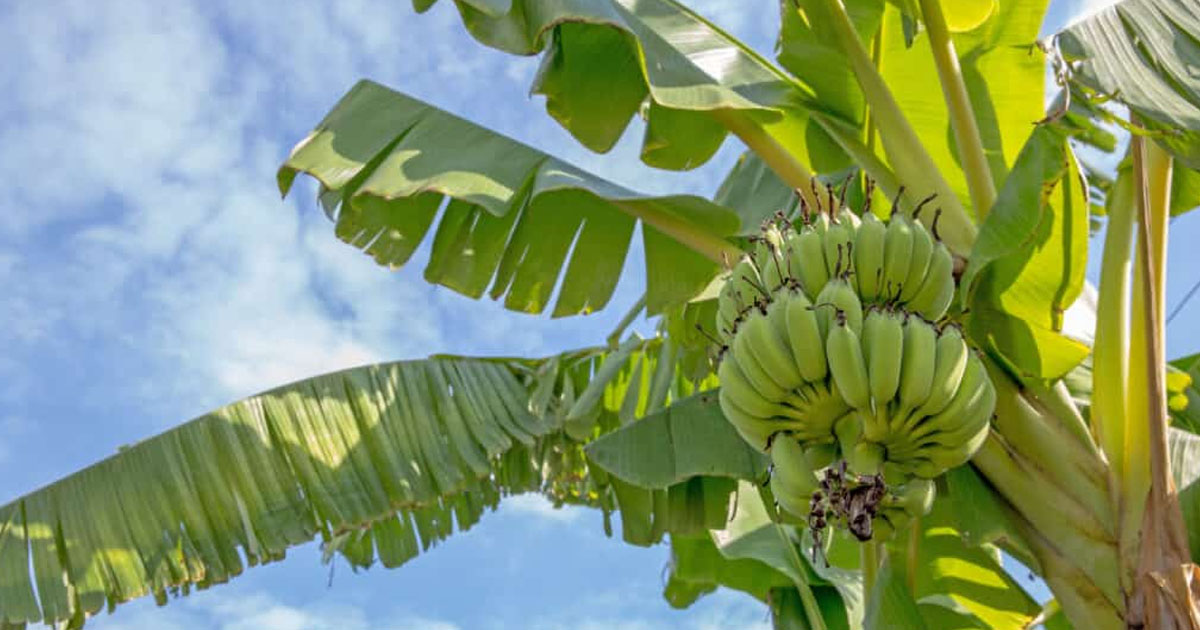
The Incredible Impact of Growing Banana Trees
Banana trees (Musa spp.) are not only a delightful addition to any landscape but also contribute significantly to the environment and local communities. Their lush foliage, vibrant fruit clusters, and impressive growth rate make them a popular choice for home gardens, farms, and even urban spaces. Beyond their aesthetic appeal, the impact of growing banana trees extends far and wide, touching on aspects such as sustainability, economic development, and health benefits.
How to Grow a Banana Tree?
Growing a banana tree is a rewarding endeavour that involves several key steps. Begin by selecting a suitable location with well-draining soil and ample sunlight. Choose a banana variety that suits your climate and space, considering factors like height and fruit type. Plant the banana tree in a hole that’s twice the size of the root ball and water it regularly, keeping the soil consistently moist but not waterlogged. Apply a balanced fertilizer to promote healthy growth. How to grow banana tree without seed? You can propagate it using offshoots or suckers from an established plant.
As the banana tree grows, provide support for its weight by propping up the stem with stakes. Keep the area around the tree clear of weeds and debris to prevent competition for nutrients. Regularly monitor for pests and diseases, and address any issues promptly. Banana trees thrive in warm temperatures and require protection from frost; consider using mulch or protective coverings during colder months.
Once the tree produces fruit, be patient, as it can take several months for bananas to ripen. Harvest the fruit when they are fully mature but still slightly green, and allow them to ripen indoors. With proper care and attention to its specific needs, your banana tree can flourish and yield a bountiful harvest of delicious and nutritious bananas.
The Incredible Impact of Growing Banana Trees
Environmental Benefits:
Carbon Sequestration: Banana trees are adept at absorbing carbon dioxide from the atmosphere, helping mitigate the effects of climate change. Their rapid growth and large leaves contribute to this process, making them valuable assets in the fight against global warming.
Soil Health: The fallen leaves of banana trees decompose rapidly, enriching the soil with organic matter and nutrients. This organic matter enhances soil structure, water retention, and overall fertility, reducing the need for synthetic fertilizers and promoting sustainable agriculture.
Erosion Control: The dense root system of banana trees acts as a natural barrier against soil erosion. By stabilizing the soil, they prevent valuable topsoil from washing away during heavy rains, preserving agricultural land and promoting ecosystem health.
Economic Significance:
Agricultural Livelihoods: Banana cultivation serves as a major source of income for countless farmers around the world. Small-scale farmers in tropical regions often rely on banana crops for sustenance and economic stability.
Export Industry: Bananas are one of the most traded fruits globally, contributing billions of dollars to the economies of producing countries. Countries like Ecuador, the Philippines, and Costa Rica are prominent players in the global banana export market, providing jobs and economic growth.
Value-Added Products: Beyond fresh fruit, bananas are used to create a range of value-added products such as banana chips, dried banana slices, and banana-based beverages. These products diversify the market and generate additional revenue streams.
Health and Nutrition:
Rich Nutrient Profile: Bananas are a nutritional powerhouse, packed with essential vitamins, minerals, and dietary fiber. They are a good source of vitamin C, vitamin B6, and potassium, which are crucial for maintaining overall health and wellness.
Energy Boost: The natural sugars found in bananas provide a quick and sustainable energy boost, making them an ideal snack for athletes and individuals on the go.
Digestive Health: The dietary fibre in bananas promotes healthy digestion, regulates bowel movements, and supports gut health.
Cultural and Culinary Significance:
Cultural Traditions: In many cultures, banana trees hold symbolic significance and are used in religious rituals, ceremonies, and celebrations. They are deeply intertwined with the cultural fabric of various societies.
Diverse Culinary Uses: Bananas are versatile ingredients in various cuisines. They can be consumed fresh, added to smoothies, used in baking, and even cooked in savoury dishes, adding a unique flavour and texture.
Conclusion:
The incredible impact of growing banana trees extends beyond the mere act of cultivating a tropical plant. From their positive influence on the environment to their economic, nutritional, and cultural significance, banana trees play a multifaceted role in our lives. As we continue to recognize and harness their benefits, we contribute to a more sustainable and interconnected world. Whether you’re a farmer, a gardener, or simply someone who enjoys the taste of a ripe banana, embracing these remarkable trees can make a lasting impact on both local communities and the global ecosystem.







